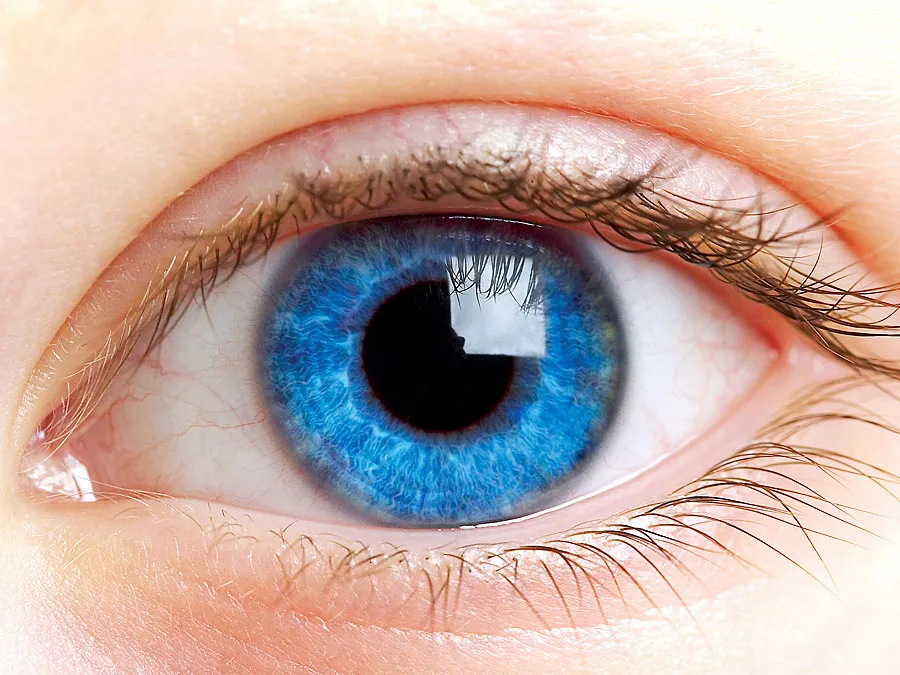Your eyes are among the most delicate and vital organs in your body, yet they are often taken for granted. With increasing exposure to digital screens and environmental pollutants, taking care of your vision has never been more important. This article provides valuable tips to help you maintain optimal eye health and prevent potential vision problems.
Understanding Eye Health
The eyes work as the body’s cameras, capturing light and transmitting signals to the brain to create visual images. Common issues, such as dry eyes, blurry vision, or strain, may be early signs of underlying conditions like nearsightedness, farsightedness, or glaucoma. Regular care and preventive measures can go a long way in keeping your eyes healthy.
Common Eye Problems
- Digital Eye Strain: Prolonged use of computers, smartphones, and tablets often leads to discomfort in the eyes.
- Dry Eyes: Caused by insufficient tear production, this condition can lead to irritation and redness.
- Age-Related Macular Degeneration (AMD): A leading cause of vision loss among older adults.
- Cataracts and Glaucoma: These serious conditions require regular eye check-ups for early detection and management.
Best Practices for Eye Health
1. Follow the 20-20-20 Rule
Digital eye strain, also known as computer vision syndrome, has become increasingly common. To alleviate this strain, follow the 20-20-20 rule: Every 20 minutes, look at an object 20 feet away for at least 20 seconds. This relaxes your eye muscles and reduces fatigue.
2. Eat for Good Vision
Your diet plays a crucial role in maintaining eye health. Foods rich in vitamins A, C, and E, as well as omega-3 fatty acids, are particularly beneficial. Include these in your meals:
- Carrots and Sweet Potatoes: Rich in beta-carotene, which converts to vitamin A.
- Leafy Greens: Spinach and kale contain lutein and zeaxanthin, essential antioxidants.
- Fish: Salmon, mackerel, and tuna are high in omega-3 fatty acids.
- Citrus Fruits: Oranges and grapefruits provide ample vitamin C.
3. Wear Sunglasses
UV rays from the sun can damage your eyes and increase the risk of cataracts and macular degeneration. When outdoors, wear sunglasses that block 99% to 100% of UVA and UVB rays. Polarized lenses are also an excellent choice for reducing glare.
4. Stay Hydrated
Dehydration can lead to dry eyes. Ensure you drink enough water throughout the day to maintain proper tear production and eye lubrication.
5. Get Regular Eye Exams
An annual comprehensive eye exam is essential, even if you don’t wear glasses or contact lenses. Regular check-ups can detect issues like glaucoma, diabetic retinopathy, or other conditions before they become severe.
6. Practice Proper Hygiene with Contact Lenses
If you wear contact lenses, ensure they are cleaned and stored correctly. Avoid sleeping with them in unless prescribed, as this can increase the risk of infections.
7. Limit Screen Time
Excessive screen exposure can harm your eyes. Use blue light-blocking glasses, adjust the brightness of your screens, and take regular breaks to reduce the impact.
Eye Exercises to Improve Vision
Incorporating simple eye exercises into your daily routine can improve focus and reduce strain:
- Palming: Rub your palms together to generate warmth and gently place them over your eyes for a few minutes.
- Eye Rolling: Slowly roll your eyes in a circular motion for a few seconds, both clockwise and counterclockwise.
- Focus Switching: Hold a pen at arm’s length, focus on it, and slowly bring it closer to your nose. Repeat this exercise to strengthen eye muscles.
How Lifestyle Affects Eye Health
Your overall lifestyle significantly impacts your vision. Smoking, for instance, increases the risk of cataracts, AMD, and optic nerve damage. Additionally, a sedentary lifestyle can contribute to conditions like diabetes, which in turn affects vision.
Regular physical activity can lower the risk of systemic conditions that impact eye health. Aim for at least 30 minutes of exercise daily, whether it’s brisk walking, yoga, or aerobics.
Protect Your Eyes at Work
For those working in environments with potential hazards, such as construction sites or laboratories, wearing safety goggles is crucial. These protective measures prevent accidents that could lead to permanent damage.
Signs You Shouldn’t Ignore
If you experience any of the following symptoms, consult an eye care professional immediately:
- Sudden vision changes or loss
- Persistent pain or redness
- Sensitivity to light
- Floaters or flashes of light
Emerging Trends in Eye Care
Advancements in technology are revolutionizing the field of optometry. Smart contact lenses, for example, are being developed to monitor eye health and treat specific conditions. Similarly, artificial intelligence is aiding in the early detection of diseases like diabetic retinopathy.
Final Thoughts
Your vision is precious, and taking proactive steps to maintain eye health is crucial for a good quality of life. From following a healthy diet to practicing simple habits like the 20-20-20 rule, small efforts can yield significant benefits.
Invest in your eye health today and enjoy clear, comfortable vision for years to come.
FAQs
1. How often should I visit an eye doctor?
It’s recommended to get an eye exam annually or as advised by your healthcare provider.
2. Can eye exercises improve eyesight?
Eye exercises help reduce strain and improve focus but may not correct refractive errors like nearsightedness.
3. Are carrots really good for the eyes?
Yes, carrots are rich in beta-carotene, which supports overall eye health.
Internal Link :- opticalsworld










